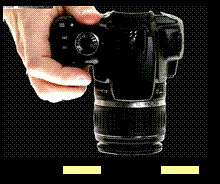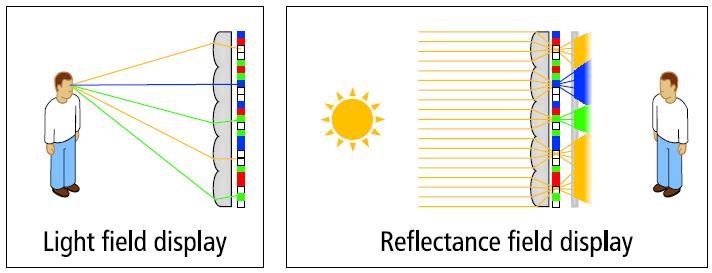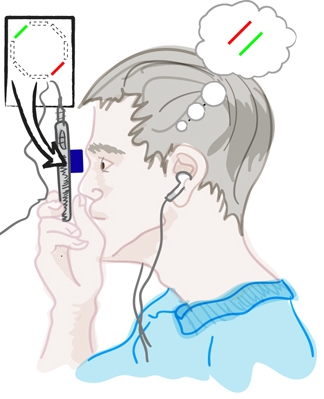
Home | News | Join Us | People | Projects | Publications | Talks | Courses
Next
Generation CAT-Scan Machines
General computed
axial tomography (CAT or CAT-scan)
acquires 3D views of a volume. The usage has been limited to specific
professional applications in medical, industrial and security fields.
There are two main reasons (i) X-ray sources are complex and hazardous
and (ii) The machines require mechanical scanning. The fundamental
concepts have remained the same for several decades and still involve
highly complex machinery (See video).
We are using optical and mathematical insight to design a novel CAT-scan machine. Using spatial heterodyning principles, we exploit the sensor configuration and associated signal processing tools we have invented to recover a higher dimensional signal from lower dimensional sensor readings. In addition, we use a new generation of descattering methods from computational photography that can analyze and decompose direct component from global component. We have also built models to analyze light transport in scattering media.
A sophisticated co-design of optical and digital processing will eliminate all moving parts and possibly allow us to use less harmful wavelengths. This will greatly simplify the design and allow us to build portable, always-on volumetric imaging devices. Beyond health screening and diagnostics, the ability to see inside our body will open up a range of applications in HCI, productivity and entertainment.
We are using optical and mathematical insight to design a novel CAT-scan machine. Using spatial heterodyning principles, we exploit the sensor configuration and associated signal processing tools we have invented to recover a higher dimensional signal from lower dimensional sensor readings. In addition, we use a new generation of descattering methods from computational photography that can analyze and decompose direct component from global component. We have also built models to analyze light transport in scattering media.
A sophisticated co-design of optical and digital processing will eliminate all moving parts and possibly allow us to use less harmful wavelengths. This will greatly simplify the design and allow us to build portable, always-on volumetric imaging devices. Beyond health screening and diagnostics, the ability to see inside our body will open up a range of applications in HCI, productivity and entertainment.
Publications
Jaewon Kim, MS Thesis, MIT Media Lab Next Generation CAT-Scan Machines, 2010
J Kim, D Lanman, Y Mukaigawa, and R Raskar,Descattering Transmission via Angular Filtering, European Conference on Computer Vision (ECCV), September, 2010
Y.Mukaigawa, Y.Yagi, R.Raskar, Analysis of Light Transport in Scattering Media IEEE CVPR 2010, June 2010, oral
Jaewon Kim, MS Thesis, MIT Media Lab Next Generation CAT-Scan Machines, 2010
J Kim, D Lanman, Y Mukaigawa, and R Raskar,Descattering Transmission via Angular Filtering, European Conference on Computer Vision (ECCV), September, 2010
Y.Mukaigawa, Y.Yagi, R.Raskar, Analysis of Light Transport in Scattering Media IEEE CVPR 2010, June 2010, oral
Recent projects in Camera Culture group
 |
 |
 |
 |
 |
 |
| Computational Photography |
6D Display Lighting and Viewpt aware displays |
Bokode Long Distance Barcodes |
BiDi Screen Touch+3D Hover on Thin LCD |
NETRA Cellphone based Eye Test |
GlassesFree 3DHDTV |
Home | News | Join Us | People | Projects | Publications | Talks | Courses